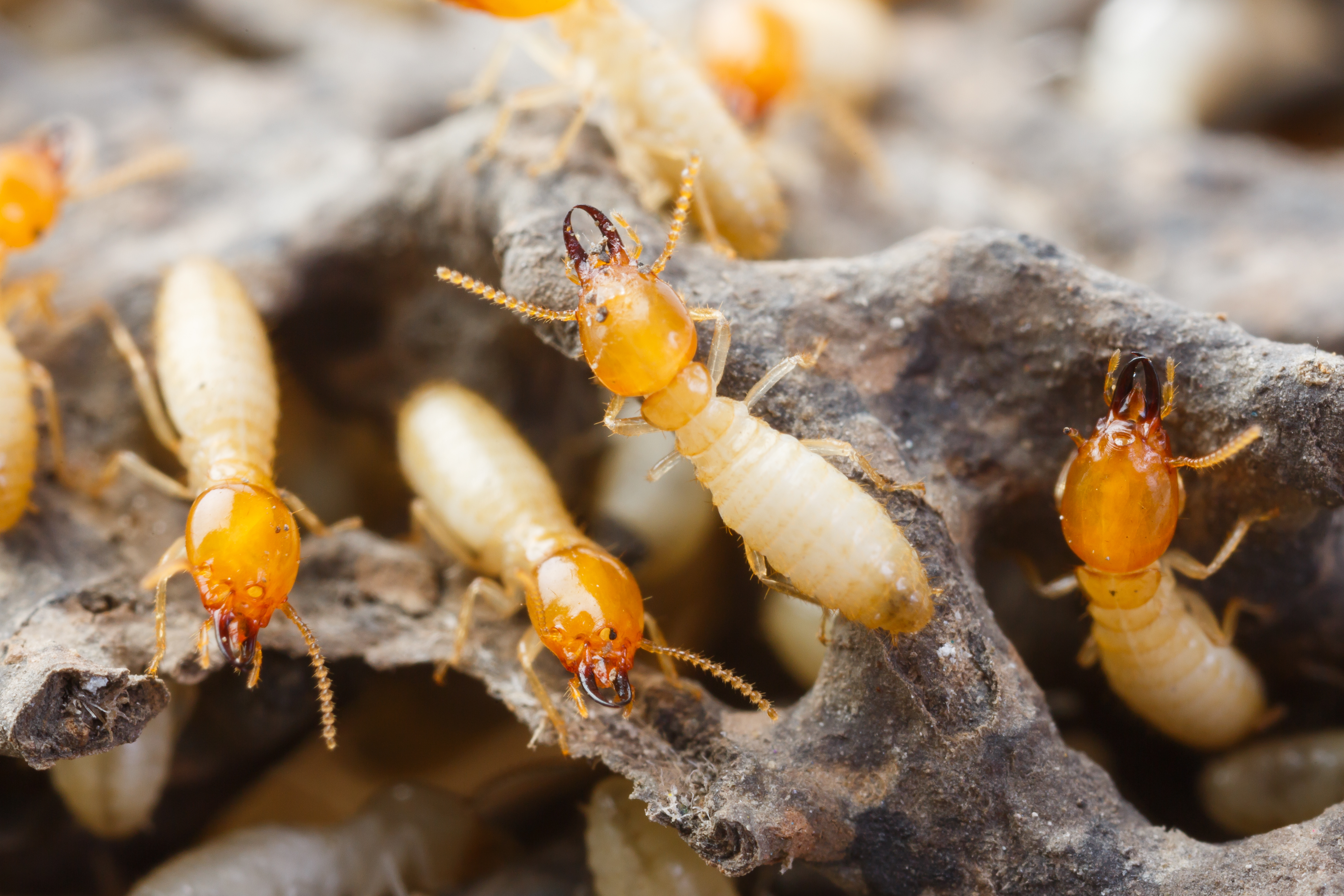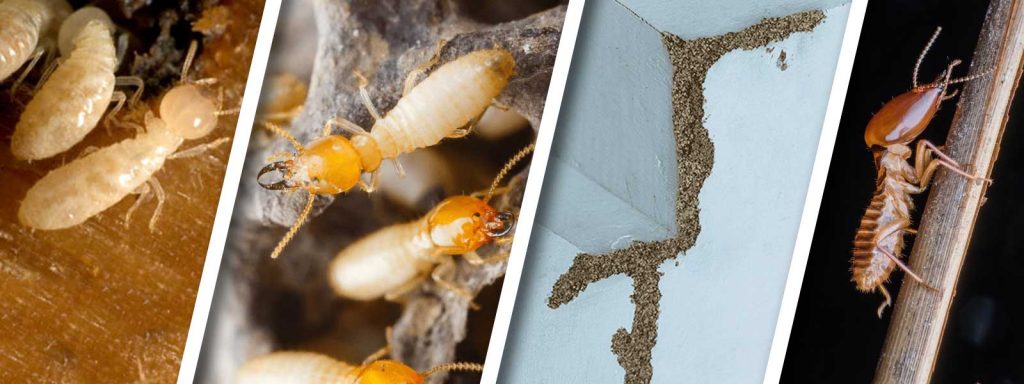Expert Termite Control Services: Protect Your Home from Termite Damages
Expert Termite Control Services: Protect Your Home from Termite Damages
Blog Article
Ecological Effect of Pest Control: Harmonizing Efficiency With Sustainability
The environmental impact of pest control is a critical problem that needs a fragile equilibrium in between achieving efficiency in handling bugs and guaranteeing sustainability of our ecological communities. From the usage of harmful chemicals that leak right into our dirt and water to the unintended consequences on non-target species, the repercussions of traditional parasite control techniques are far-reaching.
Hazardous Chemicals in Insect Control
The use of harmful chemicals in insect control positions considerable environmental and health dangers that call for mindful consideration and reduction approaches. Pesticides, herbicides, and insecticides are typically used to eradicate pests, yet their prevalent application can cause unexpected repercussions. These chemicals can pollute soil, water sources, and the air, influencing not just the targeted bugs however also useful pests, wildlife, and people.

To deal with these risks, integrated pest management (IPM) methods are being advertised as a more sustainable choice. IPM entails a mix of approaches such as organic control, habitat control, and the targeted use pesticides as a last option (ant control huntersville nc). By adopting an all natural strategy to pest control, we can lessen the environmental and health and wellness impacts associated with harmful chemicals while properly taking care of pest populations
Influence On Non-Target Species
Taking into consideration the unintentional consequences of parasite control techniques, the effect on non-target species is a critical facet that calls for extensive evaluation. While pest control steps aim to target details insects, various other microorganisms in the ecosystem might be inadvertently influenced. Non-target species, consisting of advantageous bugs, birds, animals, and also plants, can suffer straight or indirect harm from pesticide applications or organic control methods.
Pesticides created to battle a certain insect pest may harm pollinators like bees or natural killers such as ladybugs. Biological control representatives, if not species-specific, can pose risks to unexpected targets, interrupting the environmental balance.
To mitigate the effect on non-target species, incorporated bug administration (IPM) approaches that emphasize a holistic approach to pest control are advised. These methods prioritize using environmentally pleasant techniques, decreasing injury to useful organisms while efficiently managing pest populaces. Performing complete danger analyses and monitoring the end results of parasite control initiatives are vital steps in securing non-target types and promoting total ecological community health and wellness.
Soil and Water Contamination
Unexpected ecological effects of insect control techniques extend past affecting non-target species, with substantial ramifications for soil and water contamination. Chemicals, herbicides, and chemical fertilizers used in pest control can seep into the dirt and contaminate groundwater, posturing a danger to both earthbound and water ecosystems. Dirt contamination can disrupt the balance of microorganisms essential for nutrition cycling and plant development, leading to decreased dirt fertility and efficiency. Moreover, these chemicals can continue the environment for prolonged durations, collecting in the soil and possibly going into the food web.
Water contamination is one more critical issue connected with bug control techniques. Runoff from farming areas treated with chemicals can lug these chemicals right into nearby water bodies, affecting aquatic organisms and water high quality. Impurities in water resources can have far-ranging effects, influencing not only aquatic life but also human health and wellness with the usage of polluted water or water microorganisms. To reduce soil and water contamination from insect control activities, integrated bug monitoring approaches that focus on sustainability and decrease chemical inputs are essential.
Air Contamination From Pesticide Use
Direct exposure to air-borne pesticides during agricultural applications postures a substantial worry for air pollution control measures. They can volatilize into the air and kind unstable organic substances (VOCs) and various other air-borne toxins when pesticides are sprayed onto plants - termite control services. These chemicals can add to the development of ground-level ozone, a major part of smog that can have destructive impacts on human health, plant efficiency, and overall air top quality. Additionally, chemical drift, where pesticides are lugged by the wind to unexpected locations, can cause the contamination of neighboring environments and water bodies.

Approaches for Sustainable Parasite Control
In the world of agricultural practices, executing lasting bug control approaches is critical for preserving environmental equilibrium and guarding plant returns. Lasting insect control stresses using eco pleasant methods to manage pest populations properly while reducing harm to non-target organisms and environments. Integrated Bug Monitoring (IPM) is an extensively adopted approach that integrates organic, cultural, physical, and chemical control techniques to accomplish long-term pest administration options.
Crop turning and diversification are additionally efficient techniques to interrupt pest life cycles and create much less beneficial problems for parasites to prosper. Eventually, by incorporating these sustainable parasite control techniques, farmers can accomplish an equilibrium between pest management performance and environmental stewardship.
Final Thought
In conclusion, the ecological impact of insect control approaches should be thoroughly taken into consideration to balance efficiency with sustainability. Damaging chemicals made use of in pest control can cause dirt and water contamination, air contamination, and damage non-target species - termite control. It is crucial to carry out lasting pest control techniques to decrease these negative results on the environment and promote a healthier ecological community for future generations
By adopting a holistic method to pest control, we can decrease the ecological and health impacts connected with dangerous chemicals while properly taking care of pest populaces.

To alleviate the air pollution triggered by pesticide use, it is essential to embrace incorporated browse around these guys insect monitoring techniques that focus on the use of non-chemical bug control approaches, such as crop turning, all-natural predators, and resistant plant selections. Sustainable parasite control highlights the usage of environmentally friendly techniques to take care of insect populations effectively while reducing damage to non-target organisms and environments. Integrated Pest Management (IPM) is a widely adopted strategy that integrates organic, social, physical, and chemical control methods to accomplish long-lasting bug management services.
Report this page